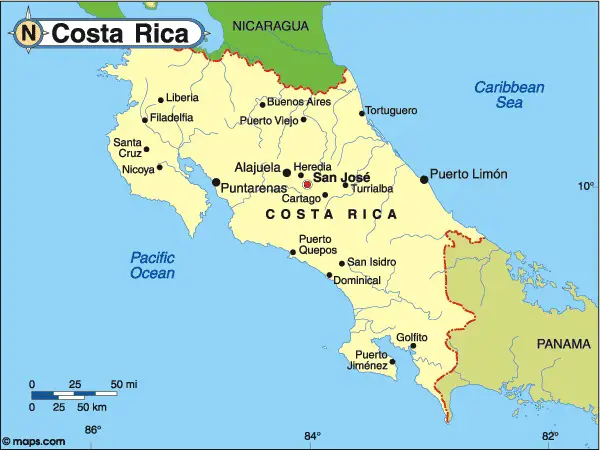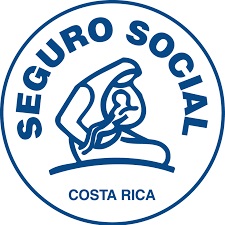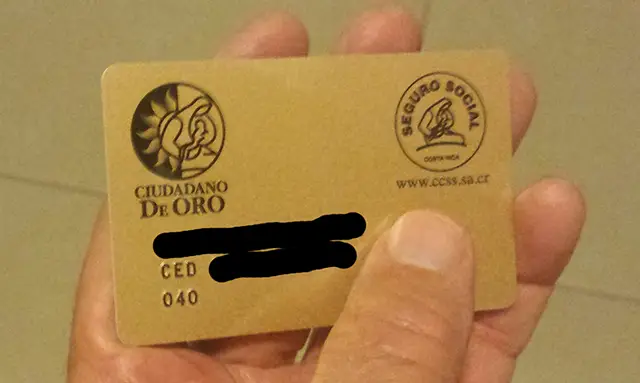Are you an expat or aspiring expat in your senior years thinking about moving to Costa Rica? When planning for your golden years outside the U.S., Costa Rica is a good choice. Those over the age of 65 are given the moniker “ciudadanos de oro” (golden citizens) and are a well-respected segment of Costa Rican society.

The cost of living in many areas in Costa Rica is a fraction of the United States, while the quality of life is high. Budget-conscious ex-pats can live comfortably in Costa Rica for less than $1,700 per month. Most basic staple foods, as well as fresh fruits and vegetables, are available year-round.
Life expectancy in Costa Rica is higher than in the U.S., averaging 79.6 years. Mortality is 18 percent higher among men and 10 percent higher for women in the U.S. when compared to Costa Rica.
Related article: Eldercare and Assisted Living in Mexico for Expats
Residency through the Pensionado (pensioner’s) program requires a monthly income from a retirement fund or pension of at least $1,000. There is no lower age limit, and the application can include a spouse. Children under 25 or those who are older with disabilities may be allowed as well.
Senior Benefits under the Caja Costarricense de Seguro Social Program

Expats that become residents or citizens of this country are also eligible for coverage under its health care system, Caja Costarricense de Seguro Social (known as CAJA). It takes approximately 18 months from application to approval for residency, so many use private health insurance while awaiting their processing papers. (See the Seguro Social Facebook page.)
With CAJA, most procedures are free or require a very small copayment, although you must contribute a percentage of your residency income each month. If you are not working in Costa Rica, then the amount used to come up with the monthly contribution is based on the income you listed on your residency application.
Caja Costarricense de Seguro Social provides a calculator to help you estimate the costs. Expats over the age of 55 do not need to pay into the Costa Rican pension system, so the IVM field on the calculator can be ignored.
The Ciudadano de Oro Card
Your senior status will also get you a Ciudadano de Oro card. Brandishing your Golden Years Membership does have its privileges. You’ll be ushered to the front of lines at the bank, government offices, and hospitals. Bus trips less than 25 km are free. Those that are between 26 and 49 km, you’ll get a 50 percent discount, while longer trips are discounted 25 percent.

Certain establishments give discounts ranging between 2 and 20 percent. These businesses include optical stores, clinical laboratories, pharmacies, shoe stores, as well as furniture and appliance stores. You can find the complete list of businesses and locations that provide a senior discount here.
With your CAJA access card, you won’t need to present a credit card for emergency services. You’ll also have free access to the Cruz Roja ambulance if you need it. Most generic label medicines can be obtained without charge, some without a prescription.
Drawbacks to Caja Costarricense de Seguro Social Program
As with most national healthcare programs, there are drawbacks to the Caja Costarricense de Seguro Social.
The most troublesome is access to specialists. Although you will be able to see local physicians for most issues, when your doctor refers you to a specialist, it might take weeks even to get an appointment. Then, depending on the course of treatment, it might be months before surgery or an MRI can be scheduled. Specialists might not be located near where you live either. Limited locations necessitate long travel times and perhaps even overnight stays.
Related article: Panama Eldercare and Senior Care for Expats
Unfortunately, long wait times are not necessarily confined to specialists. You could experience a delay in treatment at your primary care physician’s office or even in the emergency room, depending on the number of patients seeking care.
Long-term Care Facilities in Costa Rica
Costa Rica understands that there are activities their Golden citizens might need help with. Between 2010 and 2016, the country created 50 community care networks to serve about 10,000 elderly. This program involved more than 5,000 older volunteers who were trained to make home visits, facilitate health services, and provide other social services to vulnerable elderly.
While the volunteer network still needs some further implementation, private caregiver services have stepped in to fill the gaps. It’s possible to hire a full or part-time nurse or caretaker for a fraction of what it would cost in the United States. So independent living in Costa Rica is a viable option for those in the retirement age range.
There are also day centers often called “Centro Diurno de la Tercera Edad.” These community centers provide meals, activities, and primary health care during the day. Some facilities specialize in the care and attention to those who have Alzheimer’s.
Nursing Homes in Costa Rica
Nursing homes, known as “Hogares para Ancianos” or “Asilos de la vejez”, are another option. Some nursing homes cater to ex-pats and have English speaking staff on hand. Others may not. It’s best to do an in-person visit to see how accommodating the facility is.
Retirement homes or assisted living facilities range between $1,000 to $5,000 a month per resident. Typically these communities provide meals, laundry, housekeeping, medical care, 24-hour nursing care, outings, and physical therapy, but it varies from place to place.
Related article: Portugal Elder Care and Assisted Living Options
Some have a buy-in option where you own your residence, while others provide long-term lease agreements. However, you should know that these communities can be extremely pricey since they are geared toward expats rather than native Costa Ricans. Again, it’s best to spend some time viewing different facilities in different parts of the country before committing.
Costa Rican Senior Care Summary
As with most Central and South American countries, elders hold a sacred place in society in Costa Rica. The government has provided certain benefits to those in their Golden years to make things easier. Many elderly Costa Ricans live with relatives and not at nursing homes when it’s possible. Day centers are convenient respite options for family caretakers.
With the growing tourist interest in Costa Rica, retirement communities and assisted living facilities are cropping up all over. With quality health care coverage and a lower cost of living, Costa Rica might be just the place for your Golden years.
Further Reading
Here are other books related to Costa Rica that may help inform you on what retirement and expat life is like in the country:
- The Costa Rica Escape Manual
- Choose Costa Rica for Retirement
- The New Golden Door to Retirement and Living in Costa Rica

10 comments
Do you have any links to assisted living facilities? I was unable to dig up any info on options. Specifically in the central area not the coast.
Sorry, I am not aware of any.
Is this information all still correct in 2022?
The last time we checked it is. We typically update these articles with the turn of the new year.
Great information, I’m 58 and retiring very soon. My wife is 61 and is at the seventh stage of early onset Alzheimer’s. She has been disabled with this disease for four years already.
I am considering a retirement life in your country. I am a very active 58 year old. I Dirtbike ride, play in the ocean 🌊, rock climb 🧗♀️, snowboard 🏂, and waterski,
I am a Dementia Practitioner.. looking to move
Kelly, my father wants to move BACK to Costa Rica and he has advanced dementia. I’m trying to find a way for him to do so and be happily safe. Maybe the two of you will cross paths!
My mother lives with us and has dementia. My husband and I are currently building a house near Dominical, and I have begun looking for residential faciliti
Hi Kate! We’re thinking of moving to the Dominican area. My husband who is 83 has dementia. I am 62 and still active. Have you had any luck w finding a nursing home type of facility near your new home that you liked?
Tracey
Thank you for the valuable information. I’m a Canadian and I think many Canadians may be planning to move to Costa Rica.